- Home
- Helen Forrester
Twopence to Cross the Mersey Page 2
Twopence to Cross the Mersey Read online
Page 2
‘How much money have you?’ asked Mother. She had sat silently staring into space, while we had divested ourselves of our coats and Father had lit the fire.
Father went through his pockets, and laid the results of his search on the settee, so that we could see the small pile of coins in the light of the bare electric bulb hanging from the ceiling.
‘Two and ninepence,’ he announced helplessly.
Thirty-three precious pennies would buy quite a lot in those days, though they would not last long in a family the size of ours.
In a dull monotone, Mother upbraided him bitterly about the mess he had got us all into, and Father snarled back that she had never been any help to him. Finally, Edward’s wailing drew his attention to more immediate concerns, and he said, ‘There is a little corner shop down the road. We could at least get some milk for Edward.’
‘And for me,’ said Avril, thrusting her small chin aggressively forward.
‘Be quiet, Avril,’ I hissed, afraid that my parents would start to quarrel again.
‘Won’t,’ replied Avril defiantly, but she did keep quiet thereafter.
Finally, it was decided that since Father was already wet through he might as well get a bit more wet by going out to the shop and buying all the food he could for the money he had.
When he had departed, the children crouched around the miserable fire, and Mother managed to change Edward’s nappy. We had only three nappies with us, and the baby had not been changed since we had set out that morning. He was, therefore, in a disgusting condition. Mother gave me the nappy she had removed, told me to find the bathroom, wash the dirty garment and bring it back to dry by the fire. I wandered off, sick and dejected, and did the best I could with cold water and no soap in a Victorian bathroom which stank of half a century of neglect.
Afterwards, Alan and I went to the kitchen, where a few dust-covered dishes were strewn along open shelves. We collected them and washed them under the only tap and, with frozen fingers, carried them back to our room. With nervous and uncertain gestures, we laid them on the table, which was covered with torn, stained oilcloth. We also had hopefully brought with us a saucepan and a frying-pan, since there was no stove in the kitchen on which to cook.
Our spirits rose when Father returned with milk, two loaves of bread, margarine, tea, sugar and a small packet of sausages. He had also brought a twopenny packet of Woodbines. With cigarettes in their mouths, our parents became a little more civil to each other.
Under Mother’s instructions, I made a feed for Edward and then fed him: he was ravenous and took the whole small bottle full. Father cooked sausages on the smoking fire, found a knife in the kitchen and cut the bread and spread it with margarine. We sat around on whatever we could find and ate a sausage apiece in our fingers. He managed to boil a pan of water and make tea in it Mother drank much and ate little, refusing a sausage which was happily snatched up by Avril. Father finally ate, and only afterwards I realized that he had not had a sausage, and I felt a crushing sense of guilt about it
Our landlady called down the stairs to say that she could hear the coalman coming, and my father looked aghast The coal donated by our landlady was already nearly consumed and we had exactly a penny left We could do nothing, and sat hopelessly silent, as the shout of ‘Coal, coal, one and nine a hundredweight’ faded down the street
That was the first of many years of nights I spent tossing restlessly, napping, waking, unable to settle because of cold or gnawing hunger. Four of us, still dressed in our underwear, were packed somehow into one bed, and Father, Alan and Brian were to manage in the other bed. Mother stayed on the settee with the baby. For a long time I lay and listened to my parents quarrelling with each other, while the baby whimpered and Fiona, her head against my shoulder, chattered inconsequently in her own uneasy sleep, her doll clasped tightly to her. I fell into a doze, from which I was awakened by Mother calling me in the early morning. I was glad to leave the bed, which smelled of urine, put on my gym-slip and blouse and go to her.
It had been decided, she said, that Father should enrol Alan, Fiona, Brian and Tony at an elementary school he had noticed on his way to the corner shop the previous night I was to stay at home and help with the baby. My loud protest that I would get behind with my schooling was sharply hushed. I was to see the children washed and tidied for school and was to divide the remaining bread and margarine between them for breakfast. All this I did, whilst shivering with cold. Brian and Tony were also shivering and were scared of going to school; Fiona and Alan were frankly relieved at the thought of something normal creeping back into their lives.
A breakfastless Father was gone with them for an hour and came back to report the children safely ensconced. He had put into his pocket, when leaving home, an old-fashioned cut-throat razor, and he now did his best to shave with it, in cold water, without soap. The result was not very good, and his clothing, still wet from yesterday’s soaking, looked crumpled and old. He then departed for the employment exchange, a three-mile walk.
Mother, Avril and I sat almost silent in the icy room. Occasionally, we would feed the baby a little of the remaining milk. We warmed it slightly by putting the bottle next to Mother’s skin down the front of her dress, and we wrapped the baby in Mother’s coat, which had not got much wetted the previous day. I then tucked our two precious blankets round both mother and child. I longed to get out of the fetid room, even if it was only to stand at the front door, but I was too afraid of my mother in her present state to ask permission to do so.
The other children came home for lunch, but there was no lunch, and they departed again for school, cold, hungry and in tears, even brave Alan’s lips quivering. Mother, Avril and I, like Father, had neither eaten nor drunk.
The afternoon dragged on and the children returned, except for Fiona.
‘Fiona’s ill,’ explained Alan anxiously. ‘A teacher is going to bring her home in a little while, when she feels better.’
I suppose my mother was past caring, for she said nothing, but, to the griping hunger pains in my stomach, was added a tightening pain of apprehension for Fiona, the frailest of us all. I tried, however, to be cheerful while I helped the boys off with their coats and then put them on again immediately, because they said they were so cold.
The front door bell clanged sonorously through the house. I expected to hear the clatter of our landlady coming down the stairs to open it, but there was no sound from the upper regions of the house, so very diffidently I rose and answered it.
At the door, stood an enormously tall man in long, black skirts. In his arms he carried Fiona.
CHAPTER FOUR
I quailed before the apparition on the doorstep – it reminded me of an outsize bat and my over-stimulated imagination suggested that it might be a vampire; in the chaotic mess that our world had become, anything was possible. The voice that issued from the apparition’s bearded face was, however, gentle and melodious, and asked to see my mother.
Nervously, I invited him (it was obviously male, despite the long, black dress) into the hall, and he slid a whey-faced Fiona to the floor, while I went to see Mother. She told me to bring the gentleman into our room, and, for the first time since our arrival, a slight animation was apparent in her face.
He entered, leading Fiona by the hand, and immediately my mother assumed the gracious manner which had, in the past, contributed to her reputation as an accomplished hostess.
‘Father!’ Her voice was bell-like. ‘This is a pleasure! Come in. Do sit down.’ She ignored poor Fiona, who came and stood by me, and stared dumbly at our new-found friend.
‘Father’? It was beyond me. I had never seen an Anglican priest in high church robes, nor yet a Roman Catholic one, in the small towns in which we had previously lived. I stood, with fingers pressed against my mouth, and wondered what further troubles this visit portended.
He was explaining to Mother that the school was an Anglican Church school. After Fiona had come out of her faint, the head
mistress had wormed out of her something of what was happening to us, and had then telephoned him. The advent of four well-dressed, well-behaved children entering a slum school had already caused some stir among the teachers and considerable jeering and cat-calling among the other pupils, so the headmistress had asked him to call upon us. Here he was, he announced gravely, and could he be of help?
As I examined the beautiful, serene face of the young priest, Mother poured out a condensed version of the story of Father’s losses. He was a Liverpool man originally, she said, and had come back to his native city in the hope of earning his living there. To me, the well-edited tale still presented a picture of foolishness, extravagance and carelessness.
Now, at last, I knew why we were in Liverpool and what the word ‘bankruptcy’ really meant to our family. I knew, with terrible clarity, that I would never see my bosom friend, Joan, again, never play with my doll’s house, never be the captain of the hockey team or be in the Easter pageant. My little world was swept away.
I looked at Alan, who was standing equally silently by the window. His eyes met mine and we shared the same sense of desolation. Then his golden eyelashes covered his eyes and shone with tears, half-hidden.
‘Have you no relations who would help you?’ asked the priest
‘I have no relations,’ said Mother coldly, ‘and my husband’s refused to know us at present’
The priest combed his beard with his fingers, and smiled when Avril tried to reach up to touch it. He took her hand gently and held it and within thirty seconds she had established herself triumphantly on his knee, from which safe throne she surveyed the rest of the family gleefully.
‘There is a great deal of unemployment in Liverpool,’ he said. ‘I fear your husband may find difficulty in finding work.’
Mother just stared disconsolately at him.
At that moment Father entered, dragging his feet slowly and looking almost as hopeless as Mother. The children ignored him, the exhausted baby slept.
Desperate to fill the silence, I cried gladly, ‘Daddy!’
He managed to smile faintly.
Mother introduced him formally to the priest, and he sat down and waited politely to hear why the priest was there. This was explained to him, while he shivered with cold and rubbed his blue hands together to restore the circulation.
Finally, the priest said to him, ‘First things first. You must have a fire or your youngest child will die. Probably I can persuade old Wright to bring up a hundredweight of coal. I have some small funds and I will bring some food. After you have eaten perhaps I can advise you a little.’
He put his hand out over the children’s heads in a gesture of blessing, said goodbye, strode out of the room and let himself out of the house.
The boys immediately broke into jubilant conversation with each other at the idea of food, and gradually Father began to relax a little for the same reason, though his face looked pinched and white. He had spent hour upon hour in the employment exchange, being chivvied from one huge queue to another, until he had finally got himself registered for work as a clerk. He was not eligible for unemployment insurance as he had never contributed to that fund, and the employment exchange clerk just laughed when he asked when he might hope to be sent to apply for a job. There were, he said, a hundred men for every job, and my father’s age was a grave difficulty – at thirty-eight he was too old to hope seriously for employment
He had hardly finished telling us of his adventures, when the doorbell rang again. I answered it quickly this time.
A surly voice from beneath a large hump inquired where it should put t’ coal, and not to keep ’im waiting cos ’e ’adn’t all night to run after folks as ’adn’t enough sense to get it in the daytime.
The landlady had shown me where our coal could be stored, and the coalman clomped through the house behind me, scattering slack liberally around him, and heaved the coal expertly over his head, out of the sack and into a broken-down box in an out-house. Then, still muttering about improvident folks, he stomped back through the passage and departed into the darkness.
I flew in to Mother, and it seemed no time at all before we had a huge fire glowing, with Father’s coat and jacket and Edward’s nappy steaming in front of it. The already heavy atmosphere of the room was intensified by the cloying stench of these garments drying, but we did not care. We learned then that, when one has to choose between warmth and being half-fed, except in the last extremities of starvation, warmth is the better choice.
An hour later the priest presented himself again, carrying two large boxes and accompanied by a boy carrying two more. The boy dropped his burdens on the step and trotted away. The priest came in, at my shy invitation. He smiled at the sight of the comforted children kneeling by the fire between the drying clothes, and, with Father’s aid, he unpacked the boxes.
The table was soon loaded with six loaves of bread, oatmeal, potatoes, sugar, margarine, a tin of baby milk, two bottles of milk, salt, bacon, some tea, a bar of common soap, a pile of torn-up old sheeting (for cleaning, and for the baby, he explained apologetically) and, wonder of wonders, a towel, a big one.
The priest sat down, and called the boys to him, while Father and I made baby formula and porridge, and Alan collected all the dishes he could find. It felt oddly like a Christmas celebration, and even Mother seemed to come a little out of her apathy as she sipped the tea and ate the porridge Father eventually brought to her. I fed the baby while the children stuffed themselves with porridge, bread and margarine and chattered excitedly, Avril’s shrill falsetto and Brian’s contralto occasionally emerging from the general hubbub. At the priest’s insistence, Father and I finally ate, and Father became more his old, lively self.
We boiled another panful of water, and I took Fiona, Brian, Tony and Avril to the bathroom, and washed their hands, faces and knees. They had not had their underclothes off for thirty-six hours and did not smell very sweet, even after my washing efforts, but a quart of water does not go very far in washing four people, and I reasoned that the beds stank so much that they were bound to smell by morning no matter what I did.
Afterwards I took them into the bedroom, tucked their overcoats over them, covered these with a greasy blanket, heard their prayers, and returned to Alan and my parents.
CHAPTER FIVE
Unemployment was so rampant in Liverpool that the young priest felt it necessary to warn Father that getting work would be a very slow process – he was too kind to say that it would be virtually impossible. He suggested that Father should apply for parish relief.
‘What is that?’ asked Father.
‘Well, it is really the old poor-law relief for the destitute, but it is now administered by the city through the public assistance committee. More help is given by way of allowances rather than by committal to the workhouse.’
Father went white at the mention of the workhouse. I stared in shocked horror at the priest. I had read all of Charles Dickens’s books – I knew about workhouses.
‘I see,’ said Father, his voice not much more than a whisper. ‘I suppose I have no alternative.’
The priest asked about our accommodation, and sat, drumming his finger-dps upon his skirt-clad knee, when he was told that our landlady wanted her rooms back for another tenant, at the end of the week.
At last he spoke.
‘There are a lot of older houses in the south end of the city. You might find a couple of rooms in one of those. Some of them are still quite respectable. There is also a High Church school in that area, which is a little better than an ordinary board school. However, you might have to pay twopence a week for each child at the school – and that might pose a problem.’
Father said optimistically that he could not imagine such a small amount being a problem, once we got settled.
The priest smiled at him pityingly, opened his mouth to speak and then decided otherwise. We would soon learn.
‘Would you like to ask me about anything else?’ he inquired.
‘No, thank you,’ said Mother suddenly. ‘You have been most kind.’
I was surprised at her firmness, and then remembered that neither she nor Father had ever had any great respect for the Church. In addition, the priest represented to her the class of people who, she must have felt, had left her in the lurch when she most needed friends. She had accepted this stranger’s help because she had to, but her grey eyes were steely, when she politely held out her hand to indicate dismissal.
I could see Father beginning to dither, like Bertie Wooster. He was obviously loath to let the priest go and yet was afraid that, if he said anything, Mother might start another bitter family row.
The priest settled the question by getting up abruptly. There was a hurt expression in the mild eyes. He ignored Mother’s hand but inclined his head slightly towards her, as he moved through the crowded room to the door. Alan, Father and I hastened to see him out, with many protestations of gratitude. He bowed gravely, blessed us and, with slow, dignified tread, went down the steps into the darkness.
I closed the door, and stood leaning against the inside of it, while the others went back to the family. I had hoped so much that the young priest would have noticed that there were five children of school age in the family and realized that only four had been enrolled in his school. I had envisaged him instructing Father to send me with the others for lessons the following morning. But he had not noticed. I fought back my disappointment and told myself that I would probably go to school as soon as we were settled in a more permanent home, and then I would be able to play in the fresh air with new friends and perhaps even be top of the class in English once more.
The untold amount of anguish that I could have been saved if the good priest had only counted his little flock is hard to imagine. Undoubtedly, the education committee and its army of attendance officers and inspectors would have enforced my right to schooling had he but observed and reported this discrepancy.

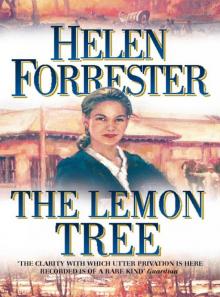 The Lemon Tree
The Lemon Tree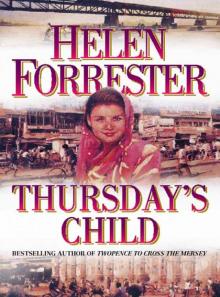 Thursday's Child
Thursday's Child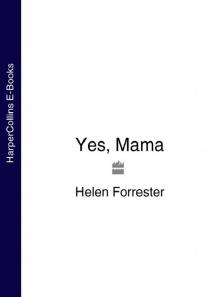 Yes, Mama
Yes, Mama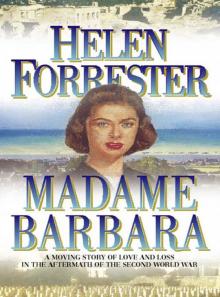 Madame Barbara
Madame Barbara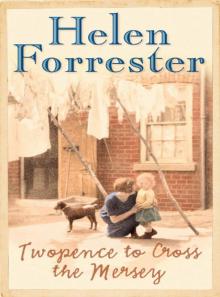 Twopence to Cross the Mersey
Twopence to Cross the Mersey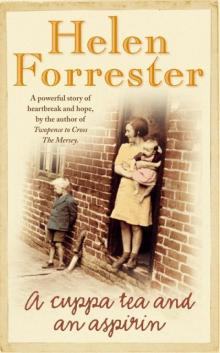 A Cuppa Tea and an Aspirin
A Cuppa Tea and an Aspirin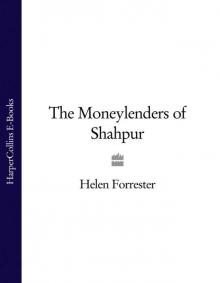 The Moneylenders of Shahpur
The Moneylenders of Shahpur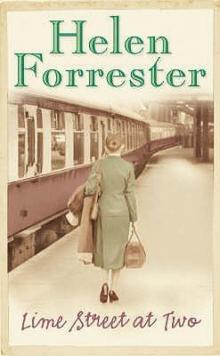 Lime Street at Two
Lime Street at Two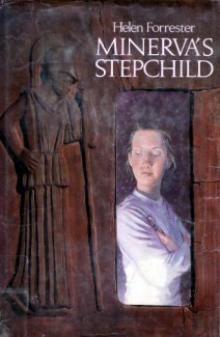 Minerva's Stepchild
Minerva's Stepchild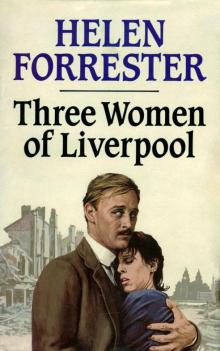 Three Women of Liverpool
Three Women of Liverpool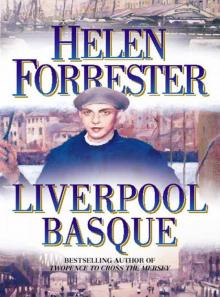 The Liverpool Basque
The Liverpool Basque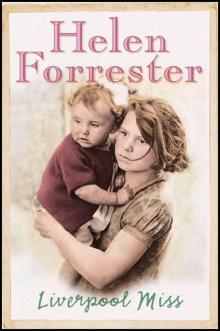 Liverpool Miss
Liverpool Miss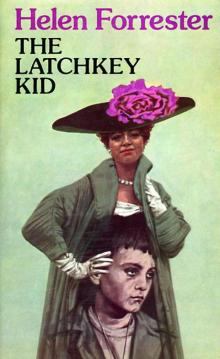 The Latchkey Kid
The Latchkey Kid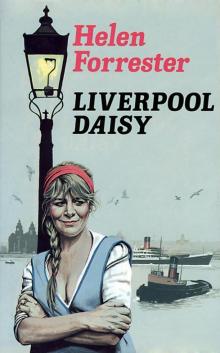 Liverpool Daisy
Liverpool Daisy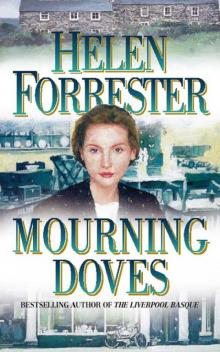 Mourning Doves
Mourning Doves